who I am? "Self" in Relational Ontology | Around the Furnace · Winter Literature

Two months ago, I read an article by Sanlian Life Weekly titled "Who Am I in China Relations". The article explores the difference between the concept of "self" in the West and the concept of "self" in China. The author believes that the "self" in the West is an independent existence, while the "self" in China is a relational existence - in China, people are always related dependents, such as children, subordinates, wives, parents, and because of lack of time to think and explore themselves, there is no way to become an independent "self". One consequence of this is self-objectification—people don’t pay attention to their emotions, only use themselves as a tool (a means to achieve a certain end), and then pin their self-worth on the outside world’s valuation and evaluation of themselves.
But what I want to point out is that about two hundred years ago, Western philosophy had already had a reflection on the relationality of the "self" , and then developed a philosophy called relational ontology . One of the representative philosophers is Martin Buber, who wrote books that are very influential in Western philosophy and religious studies, such as "Me and You", "Man and Man" and so on. This in turn influenced the reflections on relationality, especially the relationship between the self and others, among a series of phenomenologists and existential philosophers, among which Emanuel Levinas was one of the philosophers who was deeply influenced by Buber . After Levinas, many contemporary philosophers such as Judith Butler and Lisa Gunther also explored the "self" of "relationship" in their respective works. In this article, I will introduce the work of Martin Buber and the three other philosophers mentioned above, along the lines of the development of relational ontology in philosophy.
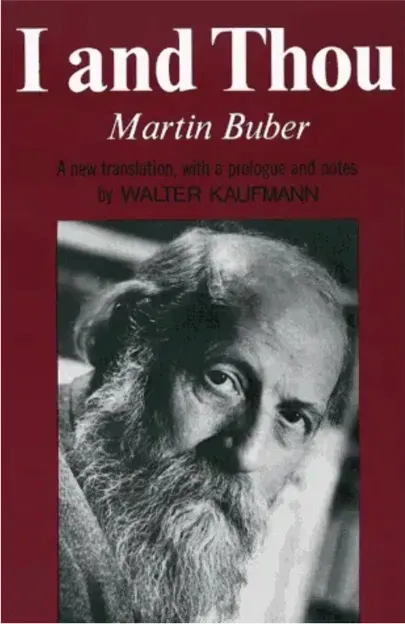
1
What is Relational Ontology
If you want to explore what relational ontology is, you need to first explore what ontology is. In a word, ontology studies the nature of "being" and tries to explain what is ultimately true. Some questions include: What is existence? What are the general characteristics of things that exist? What remains in the ultimate reality ?
The ontology in Western philosophy used to be mainly the ontology of substance. Substance does not mean a tangible, non-hollow object, but means an independent thing that continues to exist without being attached to anything else. In other words, Western philosophers used to think that the ultimate reality of the world consisted of a number of separate entities that were disconnected from any relationship .
Relational ontology holds that relation precedes entity. It holds that an object cannot exist independently of its relationship with its environment, and that any object is constituted by its own context or relationship. Perhaps a more vivid analogy is to imagine some points and lines, then we can think of relational ontology as thinking that things (including humans) are a point in a network that exists as the intersection of countless lines (relationships), and also That is, the existence of points is formed by the intersection and movement of different lines, and without those lines there would be no intersection.
Non-relational ontology, such as entity ontology, believes that points (entities) exist first, and then those different, already existing points are connected to form a network - forming lines (relations); lines or relations are in the entity or after the presence of a point. Thus, the existence of a point is no longer conditioned by its relationality, but has become a precondition for the generation of relations; entity ontology sometimes goes a step further by arguing that every relation—whether it is a relation between people and things (e.g., cognition) , or the relationship of a thing to another thing, or the relationship of people to people—all distortions of things.
2
problem of his heart
In Western philosophy, an age-old question is the question of his mind, that is, we believe that we are conscious, but how do we know that other people are also conscious - for example, can other people behave just like me on the surface, but actually But it is an empty shell zombie without consciousness?
Behaviorism gives an answer: human behavior is the human state of mind or mind itself . When we say that a person experiences pain, the mental state of "pain" is not some mysterious, inner private emotion, but rather the person's behavior—such as frowning, sobbing, moaning, whining, or saying "I'm in pain." Therefore, when the Other exhibits any relevant behavior, we have reason to believe that the Other has the relevant mental state or consciousness.
However, the relational ontology philosophers of this school, including Martin Buber, have given a different answer: they believe that the question of his heart did not exist in the first place.
Hundreds of years ago, Descartes proposed "I think", defined "self" as a "thinking thing", and used "I" thinking to determine my subjectivity and the certainty of "I" existence. The opposition between the subject (I) and the object (others, the world other than "me") arises, and thus the "heart problem" (doubt about whether the other has subjectivity or consciousness) arises.
However, in Martin Buber's view, the existence of the relationship precedes the existence of the self, and the self and the world are not opposite relations, but constitute and achieve each other . Humans cannot exist apart from their relationships, and their "self" has been entangled with the existence of others from the very beginning, so there is no atomized, independent, self-sufficient, and separated individual presupposed in some philosophical theories. Self, and naturally there is no self completely separated from others, or others completely separated from self. In other words, according to relational ontology, man is conscious because of his existence.
3
I-you and I-it:
The relational world and the empirical world
In Me and You, Buber distinguishes between two modes of survival that can be summed up in two original words: I-you and I-it. Buber believes that the former belongs to the relational world, while the latter belongs to the empirical world. In his view, I-it is not a real relationship in nature, it is just an experience and utilization, an objectification of the other . He wrote, "What do I notice, what do I feel, what do I think, what do I want, what do I perceive, what do I think" (p.54) belongs to the typical "I-it" experience world . Here, the "I" is only the self, and this "what" is an object that is thought, described, experienced and expected by the subject, an "it". He also writes, "Those who experience do not participate in the world. Because the experience is 'on them', not between them and the world. The world does not participate in the experience of the experiencer. It allows itself to be experienced, but it does not care, and nothing contributes, and nothing happens to it” (p.56).
That is to say, the experience world of "I-It" is used in one direction, and "I" uses this world as a tool or something; relatively, in the world of me-you relationship, when "I" and When "you" meet, the "me-you" relationship emerges, and it signifies a mutual respect, a real connection, rather than one-way exploitation and objectification.
For example, if I think of a person only as a functional being - I only need someone to eat with, or someone to work with, or I need someone to talk to and think of him - then when I talk to this person When we get along, we only think about how to extract the most value from this person, then our relationship is destined to be only "me-it". So, what kind of relationship is an "I-you" relationship? The "me-you" relationship means that the other person is, in my eyes, a unique, specific person. The counterparty is not or not merely functional and therefore irreplaceable.
The most important and difficult thing in the "me-you" relationship is to accept the uncertainty in the process, which is to know that the other person is not someone I control, or should be controlled by me. For example, when I ask a question, send an invitation, when I show my vulnerable side, I can't judge the other person's response. During the chat, if the other party shares a piece of their own experience, I can never say "Ah, I have experienced the exact same thing" or "I have the exact same experience", because as a specific individual, our experience cannot be aggregated transformed, reduced to the exact same thing. In an "me-you" relationship, the "me" may feel uneasy, vulnerable, and even dangerous, but this vulnerability and uncertainty is an inherent part of the "me-you" relationship.
The "I" in I-you is also different from the "I" in I-it. As Buber said, the "I" in the empirical world is a one-way, one-dimensional thing, and the "me-you" relationship is a reciprocal, reciprocal relationship that initiates the rest of "me"'s life dimension. In an "me-it" experiential world, "I" will never be a complete being, because in an "me-it" experiential world, "I" is never regarded as "you" by "it" "To call me, while "I" objectified the other party, I also objectified myself . And in the world of my-you relationship, while addressing each other with "you", the other side also responds to addressing "me" with "you" (ie, I am also treated as "you" seriously and not objectified. as a tool), so the "I" in me-you is an additional dimension of existence, or a more complete "I".
Buber is obviously more inclined towards the me-you relationship, but in his narrative, I-It and I-You are not exactly opposites, they also need each other. As Buber said, "Without it, man cannot live" (p.85). Imagine if there is no perception, belief, desire, imagination and memory of the world, in short, without "experience" how can we form relationships? Therefore, every "I-You" relationship is twofold, it is an "I-You" relationship and an "I-It" experience at the same time. So, rather than I-it and I-you being opposites, they are different dimensions (aka "different modes of being" as Buber calls it), and one flows like a tide from one I-It world to the other The world of me-you floods into the world of me-it, because the me-you relationship is always dangerous, disturbing, short-lived, and rare . Buber's prediction is almost accurate and pessimistic: "Every 'you' in the world is going to get into the state of 'it' at least again and again" (p.69).
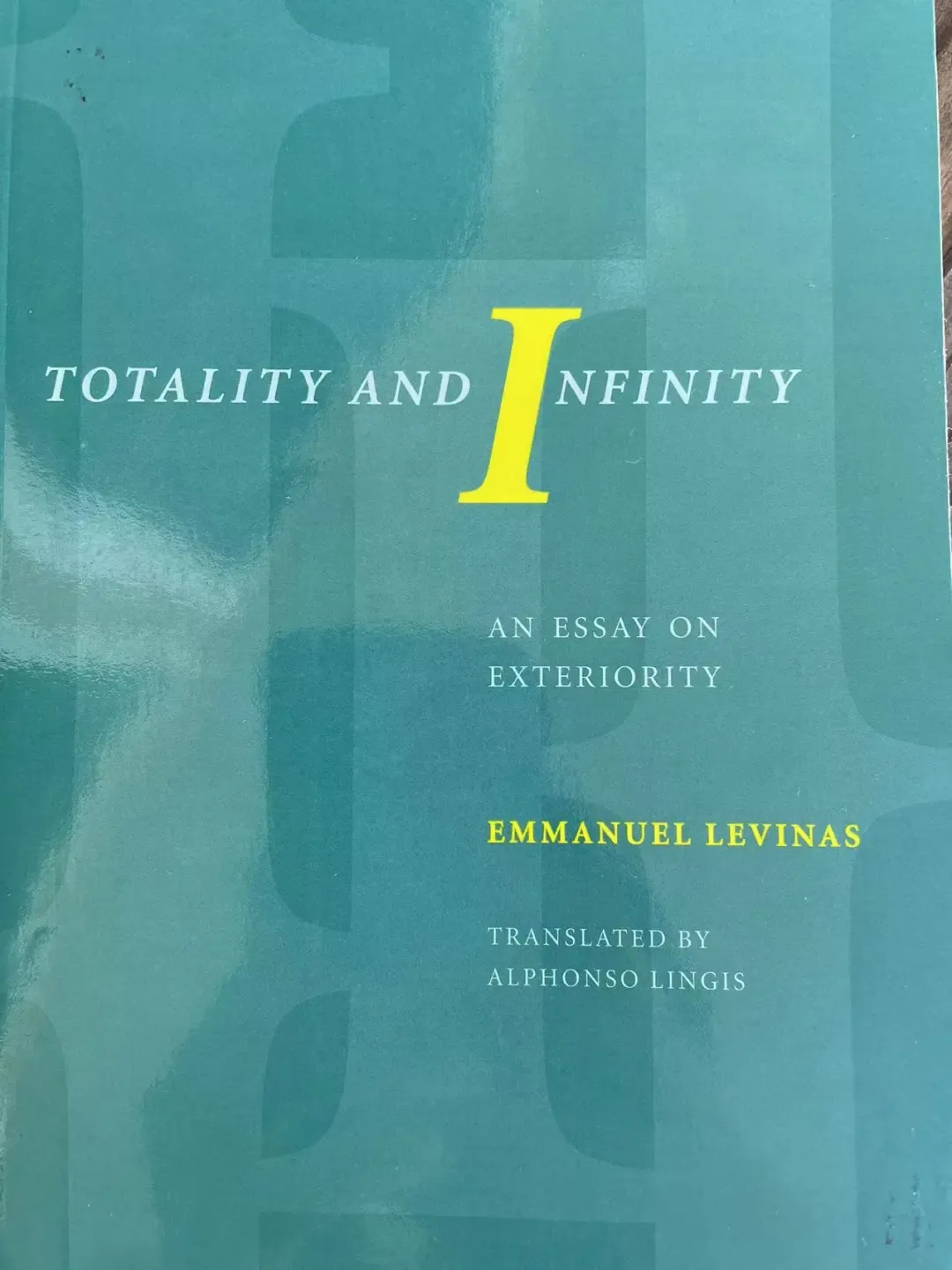
4
relational self and other
Levinas took Buber a step further. In works such as On Escape and Totality and Infinite, he explores how human subjectivity arises: it is because of the call of the Other and our infinite responsibility to the Other that subjectivity emerges.
Centuries later, Judith Butler also spoke about the relationship between subjectivity and social norms in Giving an Account of Oneself. She believes that the subject (such as the existence of an "I", an individual) and social norms (such as moral codes) do not exist separately before being related; on the contrary, the subject itself is conditioned and constructed by moral norms. She mentioned that it is one way of thinking to talk about how a subject adapts to social norms, but it is another way to discuss how the subject itself is constructed from social norms. She wants to discuss the second kind. In the first case, we presuppose that the norms (norms) are external to the subject, at a distance from the subject, and the subject's task is to find a way to use these norms, accept them, and relate to them. However, in Butler's view, norms themselves also predetermine who will become and who cannot become subjects. In other words, what she wants to explore is the operation and role of social norms in the construction of subjects; this can also be said to be An I-You epistemological framework in which the self is created and shaped by the world and relationships.
Social norms have always existed before we exist and have shaped our subjectivity in ways beyond our control, so Butler argues that the transparent, rational, continuous ethical subject that some have imagined is an impossibility. Construct - We always know ourselves only partially. But if we are partially opaque even to ourselves, how can we be ethically responsible for our actions? Isn't an ethical system that holds us accountable for actions we don't fully know about? How can we reimagine the relationship between subject, knowledge, norms, behavior, and ethical responsibility? Butler discusses these issues in depth in the later chapters of Giving an Account of Oneself, where she unravels the centuries-old relationship between ethical responsibility and full autonomy , continuing Levinas An ethical system that associates responsibility with response . Responsibility is interpreted as the Response to the Other at the call and command of the Other, and a person needs to respond or be responsible, not only for the consequences of his wrongdoing, but also for the consequences of his own wrongdoing. Things beyond one's own ability, because man has an infinite relationship with the world and the Other.
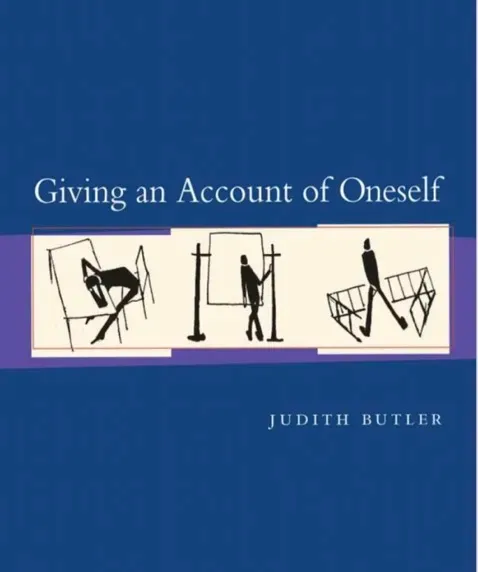
In another book, The Gift of the Other, another contemporary philosopher, Lisa Gunther, also cites Levinas' philosophical theory to explore the relationship between birth ethics, responsibility and subjectivity. Like Butler, she argues that we have no control over one of the most important things in life—birth—so a self-sufficient, autonomous subject is an illusion in the first place . Unlike Martin Buber's emphasis on reciprocity and reciprocity in the I-you relationship, in Levinas and Gunther's philosophy, ethics involves an asymmetric, unidirectional, unconditional, "I" to the Other Response and unlimited Responsibility ; in this response, the illusion of self-sufficiency and independence of the "self" is disturbed and broken, and the "I" discovers its original relationship with the Other and its inexorability. broken contact.
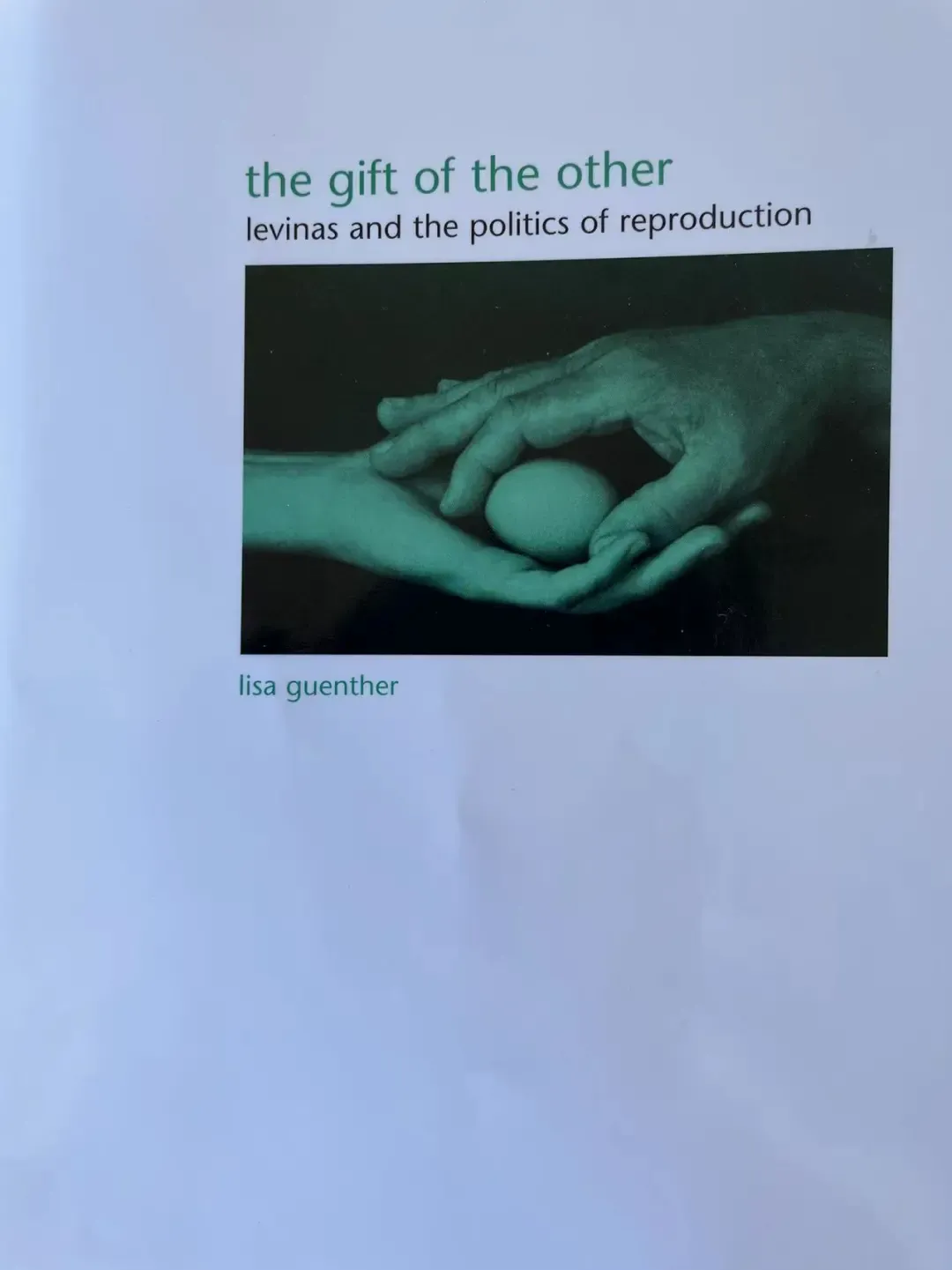
5
Can people talk to themselves
Form me-you relationship?
At the end of this article, I hope to return to the article "Who Am I in Chinese Relations" on the triptych mentioned at the beginning, and discuss some of the possibilities of the relational ontology mentioned above in more detail 's response.
The authors of the article wrote, "A person is an independent 'self' when he clearly knows who he is when he is separated from his family, social group, social class and definition. If a person develops an independent "self" self”, dealing with intimacy, and other problems will be easily resolved. But today’s Chinese have not developed from the relational “self” to the independent “self” that adults have in the Western sense.”
"Because self-objectification is to use oneself as a tool, people are completely detached from the fact that they are a living being, so people will not pay attention to their emotional, social and physiological needs, because 'tools don't need to care about it Not only that, but once he regards himself as an object, rather than an existence with unique attributes, his own sense of value is unstable or particularly low. Because he equates his own value with the outside world's valuation of objects, And the outside world's valuation of the object is uncontrollable or changeable." I think these two paragraphs are very interesting. My perception is also a bit mixed, with parts that I agree with and parts that I don't agree with.
Part of what I agree with is that the author is saying that people should not objectify themselves and use themselves as tools and objects. In other words, I think one should also try to form a me-you relationship with oneself, to see oneself, explore oneself, and communicate with oneself from a dynamic perspective.
On the other hand, I don't think there's anything to be ashamed of to find out that my worth depends on what the outside world thinks of me. In fact, that's what people are - dependent on others and dependent on. A completely independent, self-sufficient "self", a self-judgment completely independent of the judgment of others, may be an illusion in itself. I struggled with this in the past—every time I was emotionally overwhelmed by someone else's criticism or praise, I felt ashamed that I wasn't autonomous and self-sufficient. But now I've accepted that, I've accepted that we are constantly influencing and being influenced by the Other - and perhaps this acceptance might as well be seen as a form of courage. Similarly, I feel that the author's statement that "when a person clearly knows who he is when he is out of the definition of his family, social group, and social class, is an independent 'self'", which is also a false proposition. Human beings in relationships, in families, social groups, social classes, defined and shaped by them may be seen as the most fundamental condition of human beings.
But on the other hand, although it is impossible for a person to be free from all social relationships, the flexibility and particularity of man lies in the fact that he can be in multiple relationships at the same time in his life. These different relationships shape a person's uniqueness, just like A unique point in an interwoven web. As Hesse said in Demian: "If we were not unique, if we could really wipe others out of the world with guns and guns, then storytelling would be superfluous. But people do not exist only as individuals, He is also a unique and special individual, always a pivotal and wondrous point at which the world's myriad phenomena criss-cross, full of unrepeatable contingency, so that each individual's story is important, eternal, sacred of."
As a point formed by thousands of phenomena, countless relationships, and social situations in the world, the existence of relationships is not the reason for people's self-objectification. Self-objectification and more serious problems arise only when there is another relationship or identity, and there is no way to behave that is not defined by this relationship or identity. That is, the problem arises only when a relationship or an identity devours all other relationships and identities of a person, when a person reduces himself to a certain quality and is defined by a single relationship; and Under normal circumstances, people always use their other identities or relationships flexibly to help adjust their behavior and way of getting along in a relationship.
references: Buber, Martin and Kaufmann, Walter (ed). I and Thou. New York: Scribner, 1970. Butler, Judith. Giving an Account of Oneself. New York: Fordham University Press, 2005. Guenther, Lisa. The Gift of the Other: Levinas and the Politics of Reproduction. Albany: State University of New York Press, 2006. Levinas, Emmanuel. On escape. Stanford University Press, 2003. Lévinas, Emmanuel. Totality and Infinity: An Essay On Exteriority. Pittsburgh: Duquesne University Press, 1969. Zhuang Xiaodan, Yang Lu, "Who Am I" in China Relations, Sanlian Life Weekly Official Account, 2021.10.11, https://mp.weixin.qq.com/s/NozTujX2W34esIjz4-TOPw Hermann Hesse, Demian, Tianjin People's Publishing House, 2020.
Text | Liu Kexuan
Figure | From the Internet
Reviewer | Yan Bingtian
WeChat Editor | Zhang Yuxuan
Matters Editor | Francis
Around the Fire (ID: weilu_flame)

The pictures in the text are not used for other purposes without consent
You are welcome to comment below the article to exchange discussions with the Ios team and other readers
If you want to know about the fireplace and read more articles, please follow this official account and click the corresponding menu column on the official account page

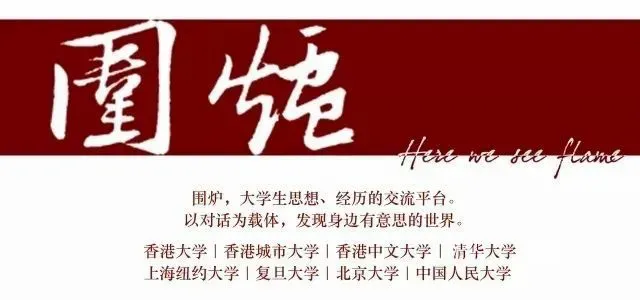
Like my work? Don't forget to support and clap, let me know that you are with me on the road of creation. Keep this enthusiasm together!

- Author
- More